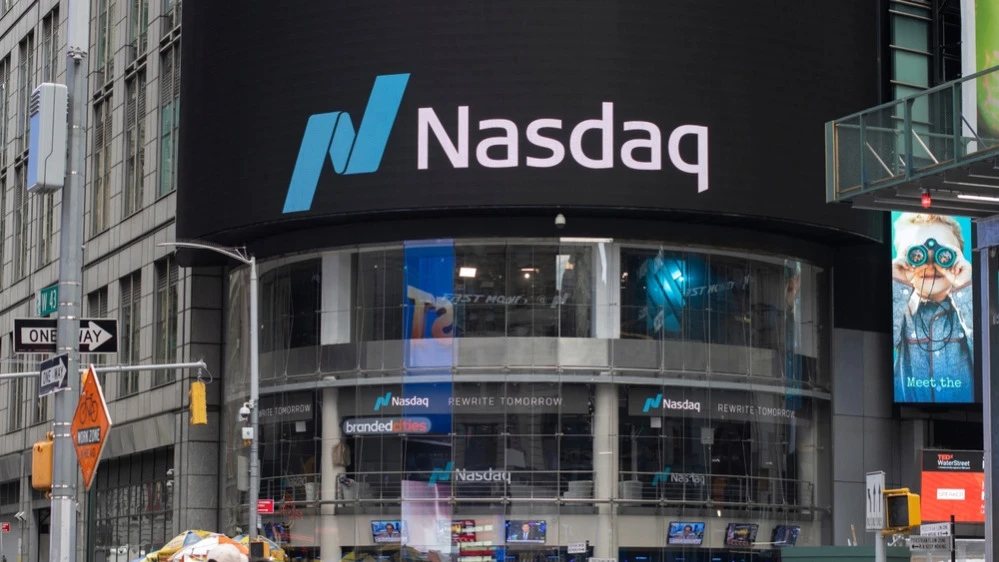Nasdaq wants to launch trading in tokenized stocks. What does that mean?
This could be the first major introduction of blockchain into the fundamental processes of the U.S. stock market

The Nasdaq exchange has asked to be allowed to trade tokenized shares. This could be the biggest test of blockchain technology on the U.S. stock market, Bloomberg notes. Last week, the first Nasdaq-listed company tokenized its shares, allowing them to be traded on decentralized exchanges. After that, Nasdaq began seeking authorization to trade tokens.
Details
Nasdaq has filed an application with the U.S. Securities and Exchange Commission (SEC) requesting that investors be allowed to trade tokenized versions of shares on its platform. Nasdaq is asking the SEC to make rule changes, including adjusting the definition of a security. This is necessary so that tokenized shares can be listed and traded on regulated exchanges like Nasdaq.
The proposed changes are subject to SEC review and will undergo a public comment period, Bloomberg explains. The Nasdaq documents describe in detail the mechanism of work with tokenized assets. The company proposes to equate such securities with ordinary shares in terms of shareholder rights and transaction execution procedures. In this case, tokenized securities will be able to be traded on the exchange under the same rules as traditional assets, the agency writes.
Nasdaq president Tal Cohen said the company aims to "build a bridge between digital and traditional assets". In a LinkedIn post, he added: "The challenge - and at the same time our responsibility - is to ensure that this transformation happens in the best interests of investors."
What it means for investors
If the regulator approves the initiative, it could be the first serious introduction of blockchain into the fundamental processes of the U.S. stock market, Bloomberg writes. The initiative addresses fundamental questions - how shares are defined, issued and accounted for. The answers to these questions may determine whether tokenization will remain a niche tool of the crypto sector or become part of Wall Street's infrastructure, the agency explains.
"The proposed solution is simple and builds on the market infrastructure and trading structure already in place," Nasdaq CFO Sarah Youngwood said at a Barclays conference on Monday.
If the SEC gives the green light, regulated U.S. exchanges will be able to integrate tokenized shares into their systems. This will bring cryptotechnology closer to the most liquid instruments on global markets and help answer the question of whether blockchain is ready for a large-scale transformation of the stock infrastructure or will remain an experiment by cryptocurrency companies.
One of the arguments for tokenizing assets is the ability to trade such shares around the clock. Unlike traditional exchanges that close at night and on weekends, blockchain allows trading without interruptions, and settlements are almost instantaneous and without the involvement of intermediaries.
Context
Nasdaq's proposal comes amid growing interest from traditional financial institutions in digital assets and blockchain. This is partly due to the fact that Washington has signaled a willingness for a more open policy on crypto-innovation. At the same time, members of President Donald Trump's family founded the cryptocurrency company World Liberty and issue their own crypto-assets (the WLFI token and USD1 stablecoin), i.e. they are direct beneficiaries of the spread of blockchain technologies.
The new head of the SEC, Paul Atkins, has instructed the regulator to develop clear criteria by which digital assets can be classified as securities. SEC Commissioner Hester Pearce said in August that the commission is ready to interact with tokenization platforms, but stressed the importance of full disclosure of information about the assets being tokenized.
Currently, a tokenized share is a digital semblance of a stock that does not give legal title to the underlying asset, Bloomberg specifies. Such tokens are traded on the blockchain rather than through brokerage accounts. Proponents of the technology believe it will increase liquidity, open the door to fractional ownership and increase access for foreign investors in the U.S. market.
The idea of tokenization has long been considered one of the most promising applications of blockchain, Bloomberg writes. Major players - BlackRock, Franklin Templeton and KKR - are already experimenting with tokenization of parts of their funds, but they do it through brokers rather than directly.
Last week, Galaxy Digital, a financial cryptocurrency and blockchain asset management company, tokenized its U.S.-listed common stock listed on Nasdaq. The move marks a new milestone in the crypto industry's push to move securities trading to blockchain. Galaxy shareholders can now convert their securities into tokens on the Solana blockchain and continue to buy and sell them even when there is no trading on Nasdaq. The share-to-token conversion is done through the startup Superstate, a fintech company in Galaxy's venture capital portfolio.
Challenges of tokenization
So far, most tokenized shares are issued by third-party entities rather than issuers on traditional exchanges like Nasdaq, Bloomberg notes. This has created problems: for example, Robinhood offered trading in OpenAI tokens, but the company itself said it did not endorse such a product, and these tokens are not equity shares.
In its filing, Nasdaq expressed concern that issuers are losing control over where and how their securities are traded. "We believe that tokenization should not bypass the will of issuers. They should have the right to decide whether to allow tokenization of their shares to be traded," the document reads.
Meanwhile, JPMorgan Chase acknowledged in a recent note that there has not been a massive shift to tokenization of bonds and other traditional assets: most active market participants are still crypto-oriented companies, not banks or publicly traded corporations.
Citadel Securities urged a cautious approach, citing the risk of arbitrage if there are no clear regulatory rules on tokenization.
This article was AI-translated and verified by a human editor
